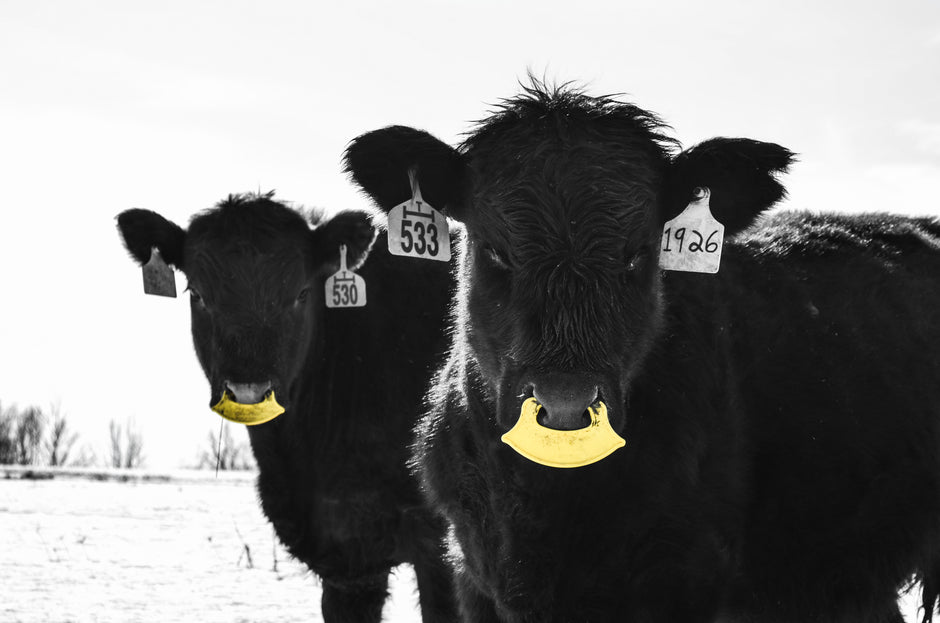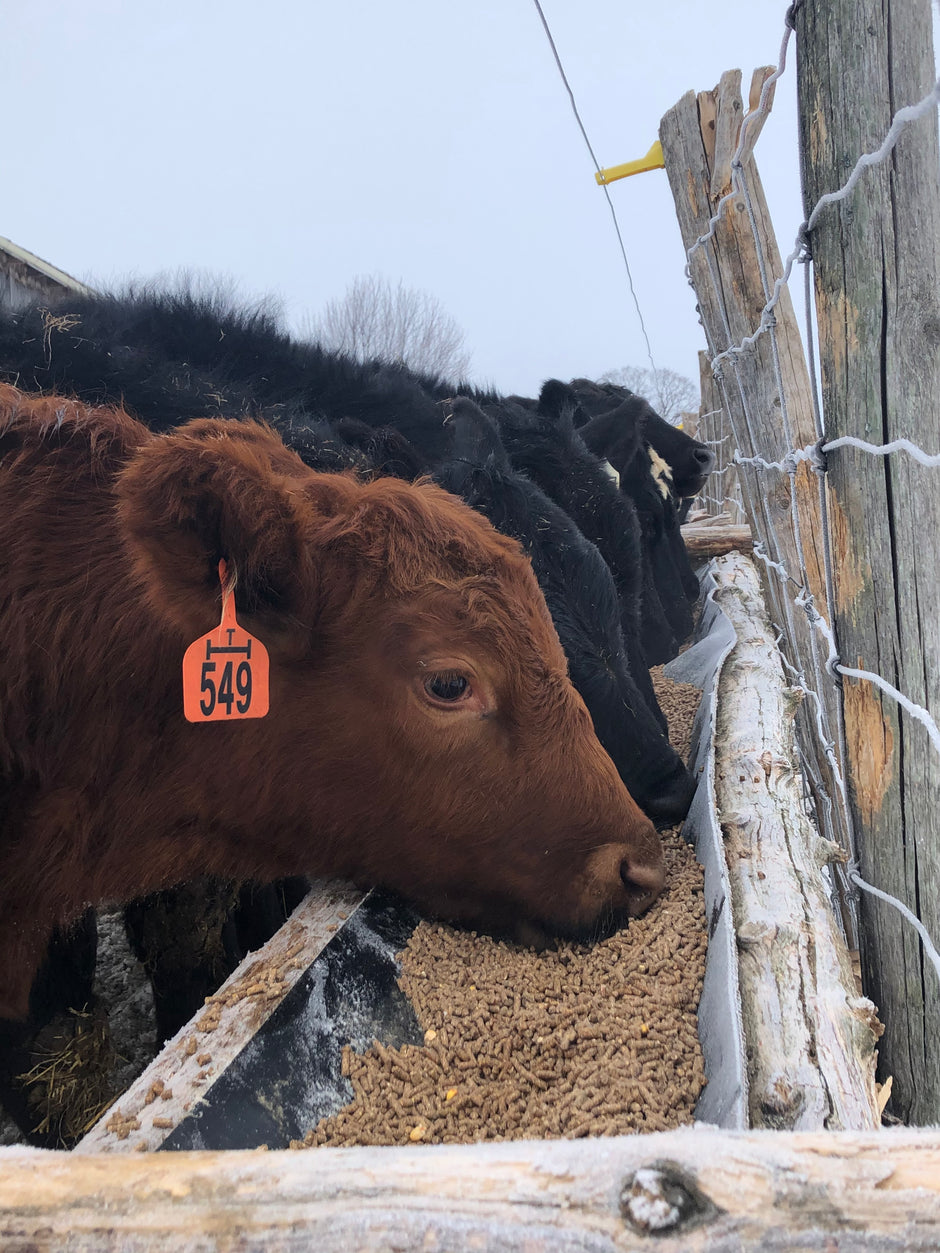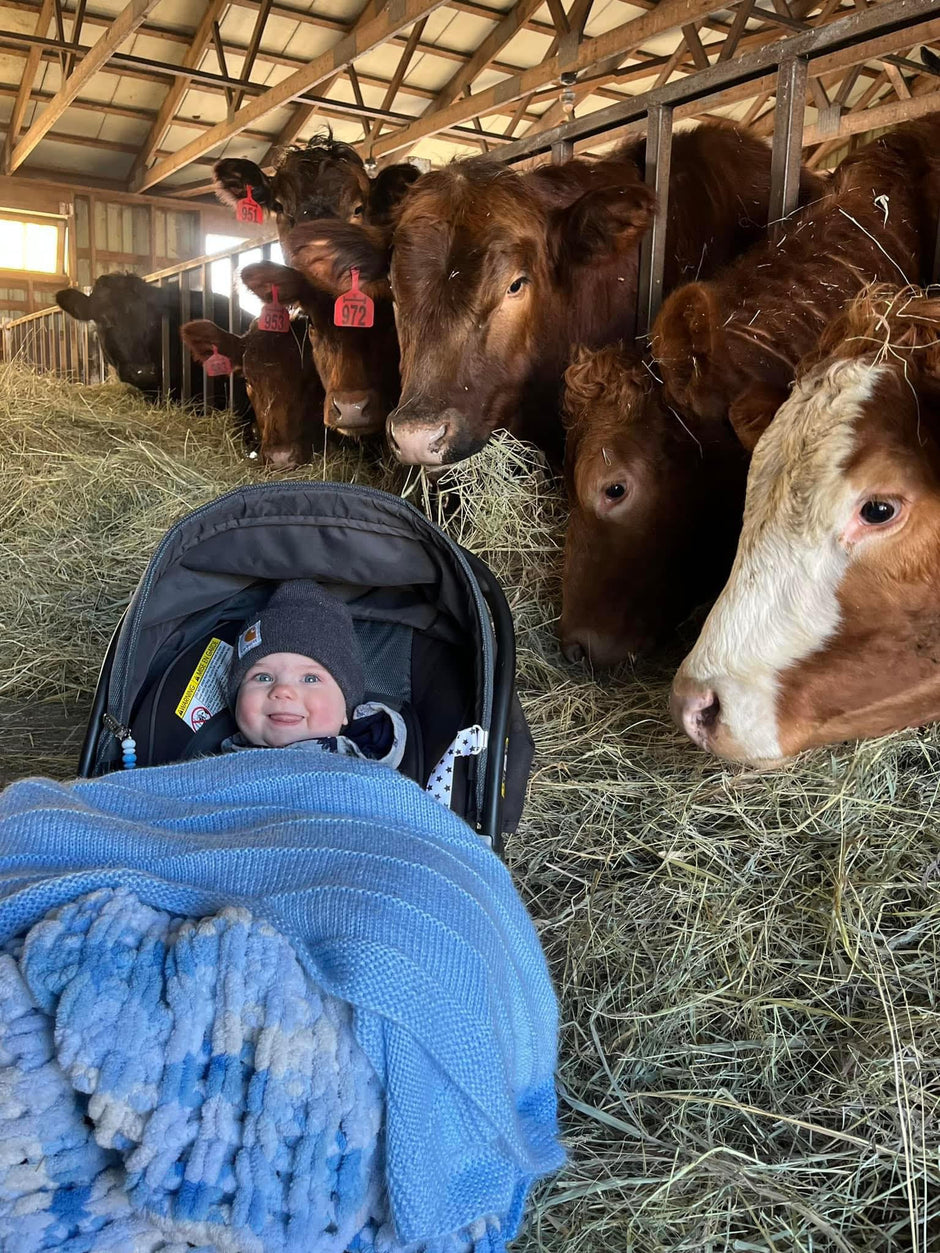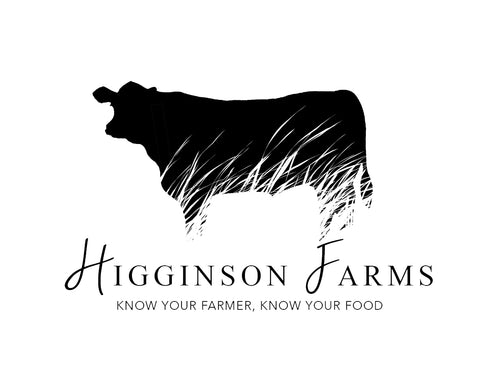Our Farming Practises
A Cow Calves
We coincide our cows calving with the start of the pasture season. Our cows are bred for maternal instincts and calving ease so that she can have her calf peacefully on her own. The birth weight of our calves usually ranges from 80 - 90 lbs.

Cow & Calf Graze Together
Cows and calves are rotationally grazed until mid-fall. This means they are moved to a different paddock every other day. Each paddock gets a rest period of 25-30 days. The rest period is very important because it allows the grass to regrow without having any cattle around to chop off new growth, allowing for a high yielding and quality pasture.

Calf Is Weaned
Calves are weaned in late fall when they are around 500 lbs and about 6 months old. As seen in the photo, we use a device called a quiet wean. This is a low stress style of weaning.
When calves are weaned from their mothers, there are usually two main stresses. One being the stress of them being away from their mothers and two, not having any milk to drink. By using a quite wean the calves stay with their mothers while the quiet wean stops them from being able to nurse. This is done for about 3 to 5 days. This breaks up the stress of weaning and causing very little to no bellering post weaning.

Growing The Calf
After the calves are weaned from their mothers, we bring them to our back-rounding barn for the winter. back rounding is a term cattle farmers use to describe the stage of a calf's feeding process from the weaning to pre-finishing ration.

Weaned Calves Go Out To Pasture
Once the snow is gone and the ground is dry enough, the weaned calves leave the back rounding barn and head out to pasture! Depending on the weather and the yields, these cattle are on grass from June to October. For good gains, we rotationally graze to optimize cattle and pasture production.

Finishing Ration
When the calves reach roughly 800 pounds they are transitioned to corn-based grain for breakfast with free choice of baleage. Each finishing animal eats 1% of their body weight in grain per day. That means an 800 pound animal eats 8 pounds of grain a day.

Processing
When animals reach 1200-1400 lbs they are sent to Parker Meats to be butchered. Parker Meats is owned and operated by Nick Martin. He is a young, hard working butcher that does a fantastic job. We are always eager to support young entrepreneurs in agriculture.
Our cattle are dry aged at this location for 21 days. Dry aging is a process where carcasses are hung in a climate-controlled location best suited for natural enzymes to eat away at muscle tissue. This is a way to naturally tenderize beef and enhance flavour.

